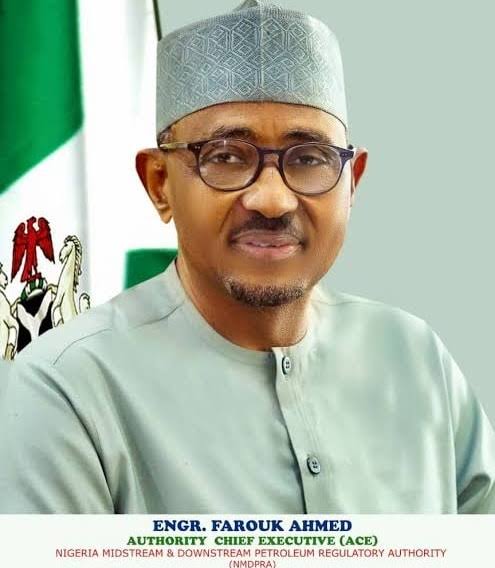Paragraph 1: Averted Crisis and Payment Solution
In December of the previous year, Nigeria faced a looming nationwide blackout due to a critical standoff between wholesale gas-producing companies and power generation companies. The crux of the issue was substantial unpaid debts owed to the gas producers, jeopardizing their ability to continue supplying the fuel that powers the majority of Nigeria’s electricity grid. A timely intervention by the presidency averted this crisis, highlighting the vulnerability of the nation’s power supply to such financial disputes. Subsequently, a workable payment solution was developed and implemented, a crucial step in stabilizing the gas supply chain and preventing future disruptions. This solution, spearheaded by Olu Verheijen, the Special Adviser to the President on Energy, proved instrumental in unlocking previously bottlenecked gas volumes, ensuring a consistent flow of fuel to power plants.
Paragraph 2: Positive Impacts of the New Policies
The implementation of the payment solution, coupled with other supportive policies initiated by the Nigerian Midstream and Downstream Petroleum Regulatory Authority (NMDPRA), has yielded significant positive outcomes across the energy sector. The improved financial flow within the gas supply chain has not only stabilized domestic power generation but also bolstered natural gas supply for export markets. This has contributed to strengthening Nigeria’s position in the global energy market and generating much-needed revenue. Beyond natural gas, the policies have stimulated investment in midstream and downstream infrastructure, revitalizing these crucial segments of the petroleum industry. Additionally, they have promoted the use of domestically produced Liquefied Petroleum Gas (LPG), a cleaner and more efficient fuel source for households and businesses.
Paragraph 3: Investment and Infrastructure Development
The positive changes brought about by the new policies have spurred substantial investment in the LPG sector. Over $400 million has been invested in the construction of new LPG distribution infrastructure, including 86 "daughter" stations, smaller-scale retail outlets, and 65 "mother" stations, larger facilities that serve as hubs for distribution. This expansion of the LPG network aims to increase access to this cleaner energy source throughout the country, reducing reliance on traditional biomass fuels and improving air quality. The increased investment reflects growing investor confidence in the stability and potential of the Nigerian energy market, driven by the government’s commitment to addressing legacy issues and promoting sustainable energy practices.
Paragraph 4: CNG as an Alternative Fuel Source
Significant strides have been made in promoting Compressed Natural Gas (CNG) as a viable alternative to petrol for vehicles. The Presidential Compressed Natural Gas Initiative (PCNGI), backed by the NMDPRA, has facilitated the establishment of 186 new vehicle conversion centers across Nigeria. This has dramatically increased the nation’s capacity to convert vehicles to CNG, boosting it by over 2,500%. As a result, the number of CNG-powered vehicles and trucks on Nigerian roads has surged, reaching an estimated 30,000 to 50,000 and continuing to grow rapidly. This transition to CNG offers significant environmental and economic benefits, reducing reliance on imported petroleum products and lowering carbon emissions from the transportation sector.
Paragraph 5: Refueling Infrastructure and Safety Standards
The expansion of the CNG vehicle fleet has been supported by parallel investments in refueling infrastructure. Nigeria’s CNG refueling capacity has significantly expanded, rising from a mere 20 stations to 56, with further expansion underway thanks to the ongoing construction of new mother and daughter stations. To ensure the safe and reliable use of CNG, collaborative efforts between PCNGI, NMDPRA, and the Standards Organisation of Nigeria (SON) have led to the development of robust safety standards. Furthermore, a Nigeria Gas Vehicle Monitoring System is currently in its pilot phase and is expected to be fully operational by 2025. This monitoring system will enhance safety and transparency within the CNG sector, tracking vehicle conversions, fuel dispensing, and other relevant data.
Paragraph 6: Deregulation and Market Stability
The full-price deregulation of the petroleum products market has ushered in a new era of competition and efficiency. This reform has leveled the playing field for market participants, fostering healthy competition and attracting significant investment opportunities. Consumers are now benefiting from competitive pricing and improved value-added services. A key indicator of the success of this policy is the absence of fuel shortages during the typically challenging end-of-year festive period, a stark contrast to previous years. Domestic refineries have played a vital role in meeting national energy supply requirements, while increased participation from other oil marketing companies has further enhanced product availability. The combined effect of the competitive market environment, the appreciation of the naira, and diversified sources of supply has stabilized pump prices nationwide, providing much-needed relief to consumers. The Petroleum Industry Stakeholders Forum, a newly established platform for dialogue and collaboration, is expected to play a crucial role in resolving industry issues swiftly and efficiently, minimizing disputes and promoting a stable and prosperous energy sector.


